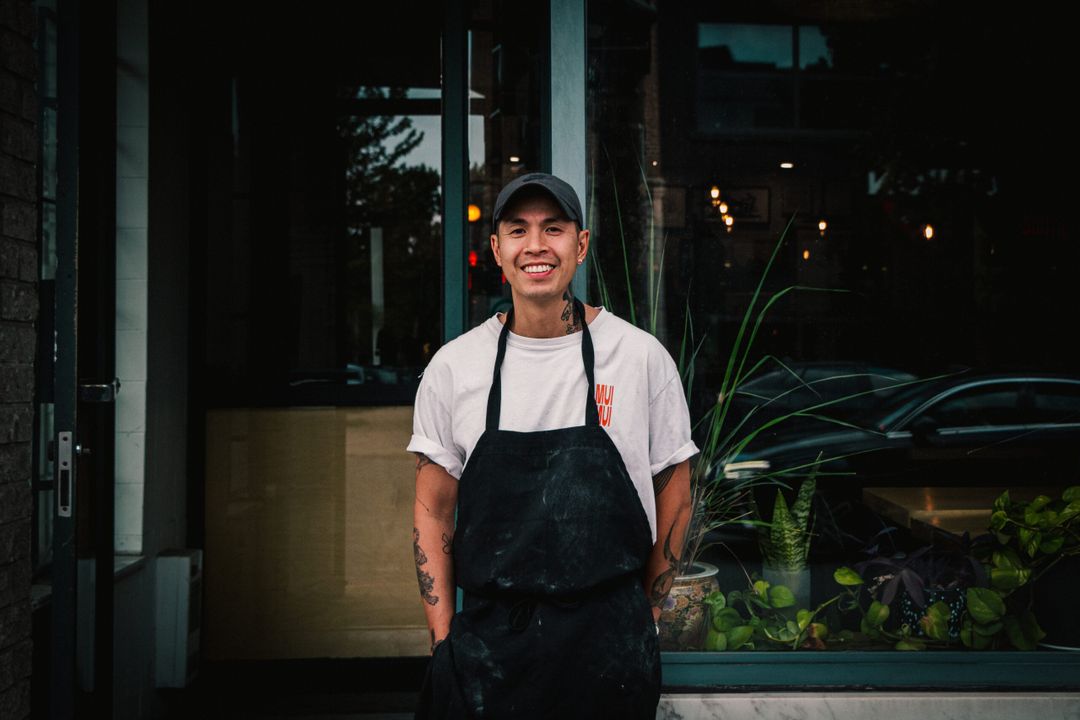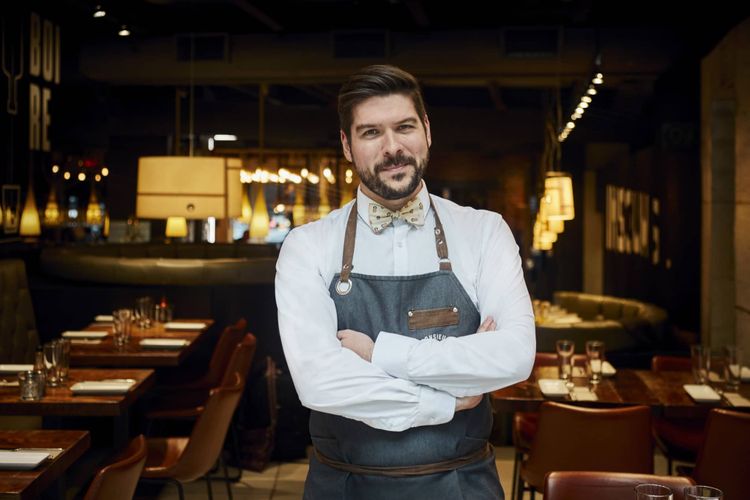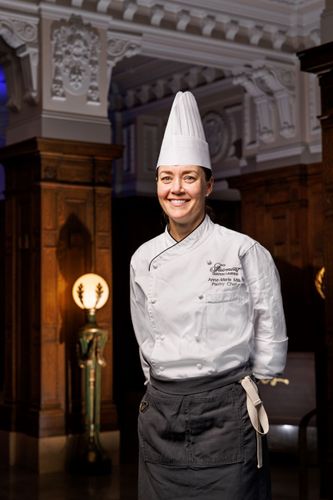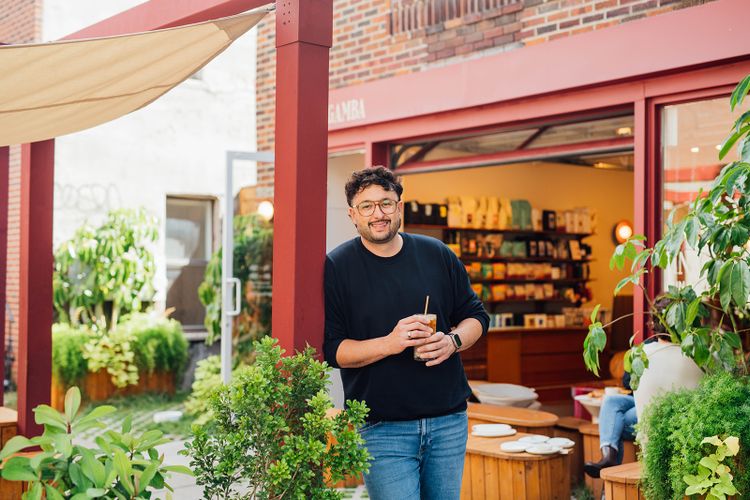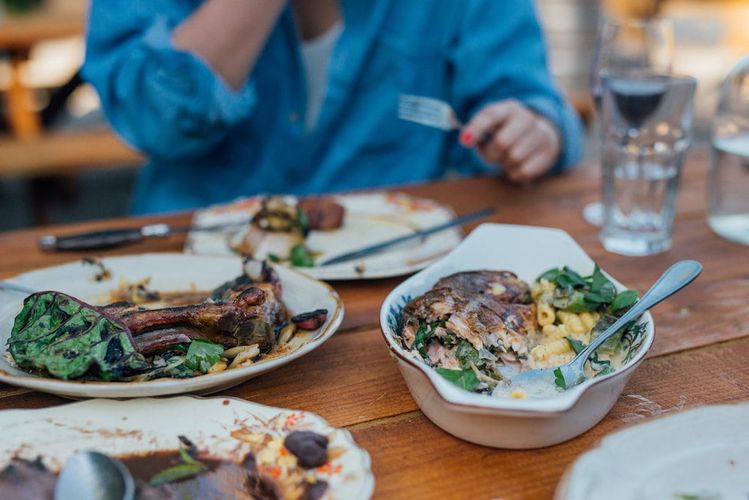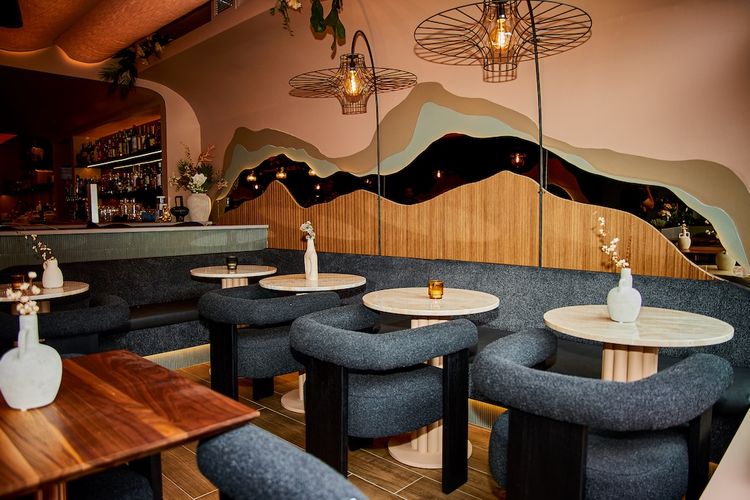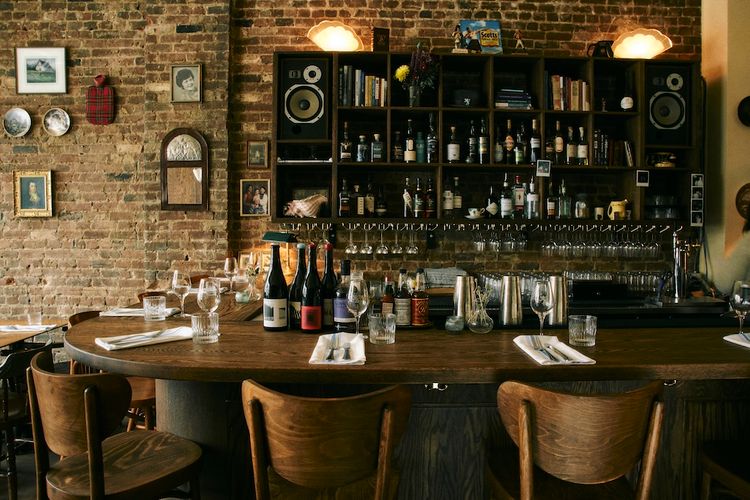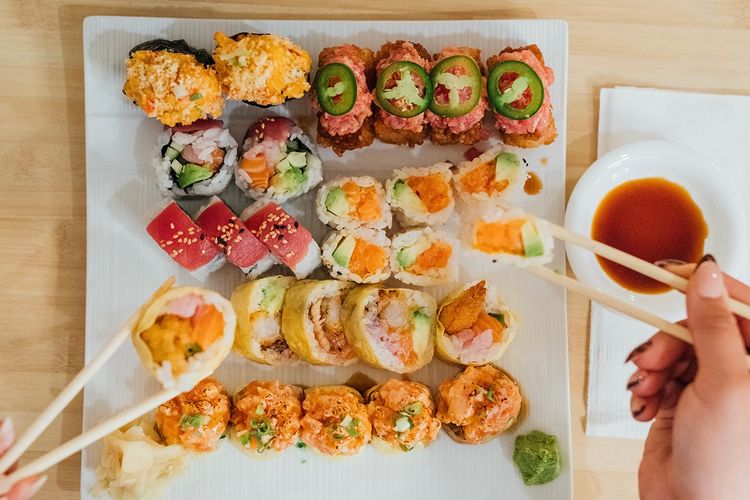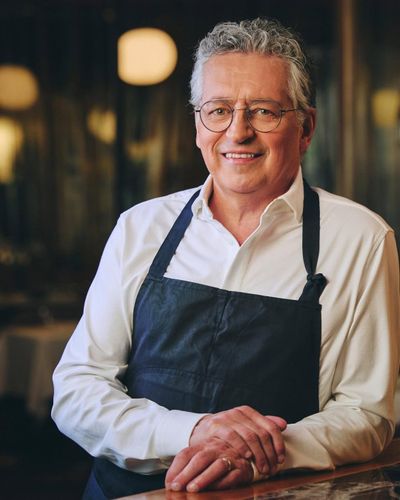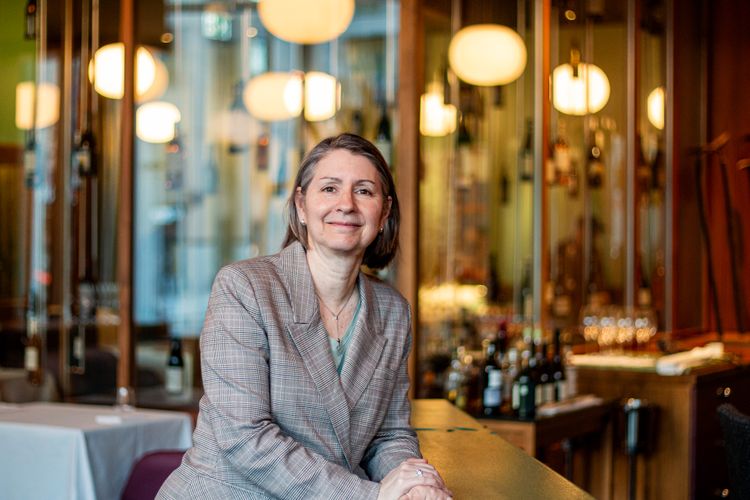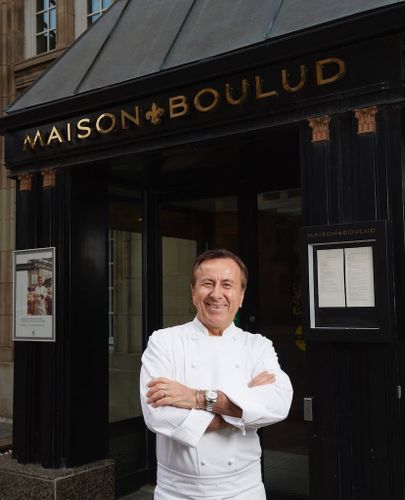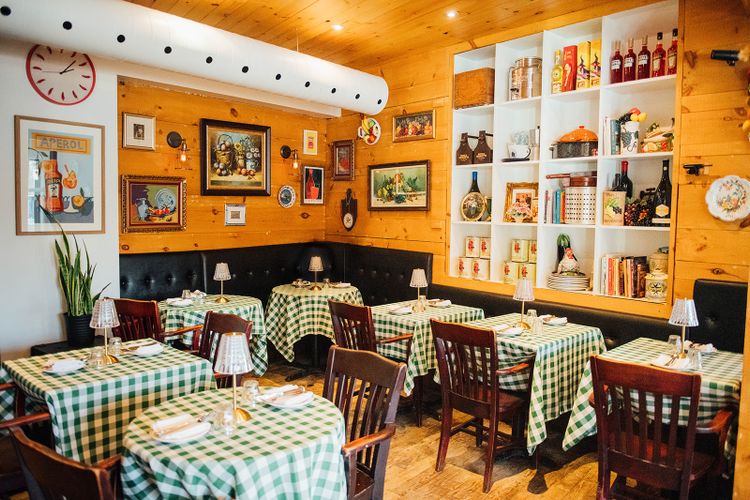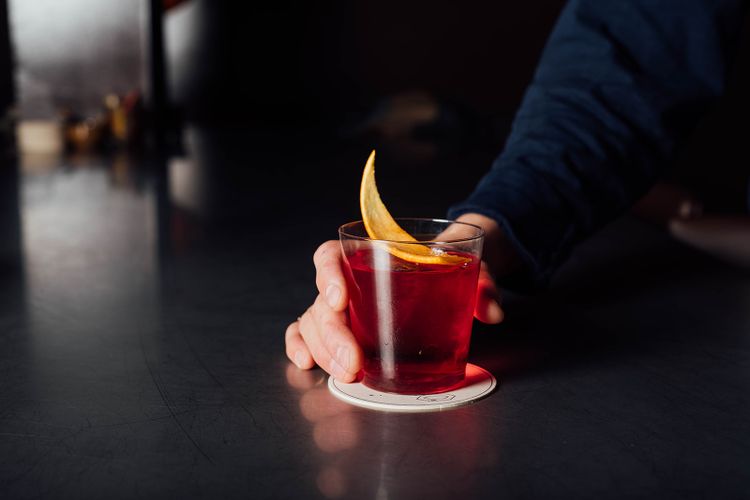Minh Phat: Rising star of Montreal gastronomy
Minh Phat is one of the rising stars of Montreal gastronomy who has been on our radar for some time now. Firstly, for his undeniable talent, but also and above all for his work ethic and devotion to his restaurant.
After discovering him at the now-defunct restaurant Orange Rouge, the whole of Montreal was absolutely thrilled to see him open his own project on Jean-Talon called Mui Mui. Never at a loss for surprises, Minh Phat, along with Mike Madokoro, chef at Bar Suzanne, and sommelier Elena Racevičiūtė Ouellette are hatching a lovely project for autumn.
As a matter of course
A proud Montrealer, Minh Phat was born of Vietnamese parents of Chinese origin who came to Montreal fleeing the war. For as long as he can remember, his father has worked in the restaurant business, and even owned his own restaurant. “I’ve always known about that world,” he says, “I’d see my father very tired at the end of endless weeks. I might as well tell you that I knew what I was getting into when I decided to make it my profession too”, he recalls.
His interest in cooking began at an early age, and his curiosity grew over the years as he experimented with flavours and textures, and with different cooking methods. “My first memory is when I was 6 or 7 and tasted a peanut butter and jam sandwich. It’s as if something happened in my head, as if I understood the concept of marrying flavours, of playing with sweet and salty. It’s stayed with me to this day.”
In high school, he turned to specialized culinary training at Calixa-Lavallée and worked in a culinary day camp. There, he sharpened his knives in a cafeteria for the elderly, “Meals on Wheels”. I wanted to start somewhere,” he says, “it was an opportunity like any other. Very quickly, they gave me the key to prep. I was only 17, but it gave me a foot in the door.”
At the end of his training, Minh was offered an internship at Club Chasse et Pêche, which he now considers a turning point in his career. There, he discovered the world of Quebec gastronomy, and was immediately hooked.
By the end of his internship, the team at Club Chasse et Pêche was full and they couldn’t afford to hire him. So, Minh decided to take a vocational specialization course to hone his skills – particularly in charcuterie and fishmongering – and at the same time worked at a delicatessen downtown. “It wasn’t my best experience, but it taught me rigour and to work extremely fast. At the time, I was combining volunteer work for the cafeteria, the caterer and the school. I was submerged in the kitchen when I was barely 18. I knew this was what I wanted to do with my life, but I also knew I couldn’t keep pushing myself so hard.”
The Club Chasse et Pêche school
On the eve of his 19th birthday, Club Chasse et Pêche called him back to offer him a job. This time it was different: it was the first time I’d been involved in serious gastronomy. It was a completely different experience from my internship,” he recalls. “I found it very hard. I had to question myself a lot, but I decided to fight to keep up. I came in earlier and finished later, I really wanted to make it.”
As a result, he took on a series of kitchen jobs, from pantry to plating to entremetier. “Club Chasse et Pêche was the best school for me. They taught me how to be an adult, the values of respect in the kitchen; they always encouraged me to be the best I could be.”
When Minh came to the end of his apprenticeship at Club Chasse et Pêche after nearly three years, he was offered a day job at Le Filet, which had just opened its doors.
“It was the best job of my life, I realized then that I was a prep guy, that I genuinely loved it. I’d arrive at Le Filet at 6 a.m., I’d be all alone, I’d put the music on really loud, and I’d have my coffee with the sun shining on the golden walls, it was beautiful.”
During those years at Le Filet, he worked closely with Yasu Okazaki, who would become a master and mentor of Japanese cuisine for him. “He taught me the Japanese twist, which I knew absolutely nothing about. I’m still very much influenced by his technique and know-how,” he says.
The Orange Rouge era
When Minh left Le Filet, he spent some time helping his friend-owners at Satay Brothers and Le Nouveau Palais, people whom he greatly respected for their work ethic and the empires they had respectively created.
In 2013, Minh Phat was approached to open the restaurant Orange Rouge, in Chinatown, as sous chef. Little did he know that it was a completely different version of himself he was about to discover.
“I immediately wanted to be part of the project. At the time, it was the first non-Chinese restaurant to open in Chinatown, and the menu was really cool. Soon, however, the chef at the time didn’t get along with the owner… So I was offered the job of chef at just 24 years old! I really didn’t know if I was ready to manage a team, and it was a lot of soul-searching. In the end, I decided I wanted to give it a try, even if it meant making mistakes. So I set up my own team, with no reputation and nothing,” says Minh Phat.
Orange Rouge was seven years of hard work, charged with emotions, but which enabled him to learn to be a leader, an entrepreneur.
Overcoming adversity to bounce back
In 2020, the pandemic struck. We all know the rest of the story: to our great despair, Orange Rouge announced its definitive closure.
“It was a very sad time in my life. For my 30th birthday, I had to close my restaurant, I split up with my girlfriend at the time, and my dog passed away.”
Despite all this, Minh Phat decided to transform these hardships into something beautiful, something that resembled him.
And so was born a project in his image, but above all marked by his experiences: Mui Mui, the charming Asian-influenced restaurant on Jean-Talon. “I never thought we’d be this busy when we opened. The pandemic taught us to adapt, and that’s what we continued to do when the restaurants reopened.”
Next, it was Manitoba’s turn to close its doors. Minh’s colleague and great friend, sommelier Elena Racevičiūtė Ouellette, shared the announcement with him, and the owners were looking for someone to take over the business. At the time, Minh Phat didn’t feel ready to take on another project. But lo and behold, a few months later, Mike Madokoro, the chef at Bar Suzanne, joined the two friends to make the venture a reality.
Carrying the torch
Named Anemone (in reference to the pulsatilla anemone, the emblematic flower of the province of Manitoba), the new restaurant will follow in the footsteps of its predecessor. “We don’t want to replace Manitoba, we’ll just bring our personal touch with a local cuisine that’s all our own. Mike will be in charge of the kitchen,” explains Minh Phat. The restaurant’s name is also a tribute to Elena’s father, a Manitoba native who passed away last year.
Minh Phat is one of those much-admired entrepreneurial culinary artists who never stops improving thanks to hard work. “There’s no such thing as luck in life, you have to work hard but above all you have to institute this notion of respect in a restaurant; whether it’s towards the food, your team or your partners.”
Sae Low: A Fresh Take on Cafécoquetel’s Legacy
Minh Phat has never been one to slow down. After Orange Rouge, Mui Mui, and the remarkable Anémone, the visionary chef is adding another chapter to his journey: Sae Low, a neighborhood café-buvette bringing new energy to Villeray.
The story of Sae Low begins with Cafécoquetel, a beloved spot that left its mark before closing in April 2023. When Minh Phat met its former owners, Pénéloppe Tancrède and Gabriel Lavallée, it was an instant connection. He decided to take over the space while preserving its soul.
With a strong team and a tempting menu featuring donburis, ceviche, petit pain au lait, and a well-curated selection of wines and cocktails, Sae Low is already shaping up to be a place where people love to linger—whether for lunch, a drink, or a relaxed evening.
We can’t wait to discover the project!
Written by Inès Duguen
Photography by Mikael Lebleu

